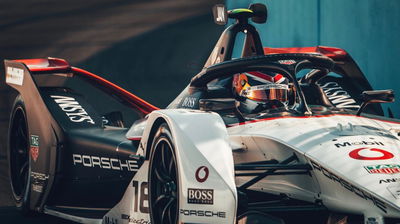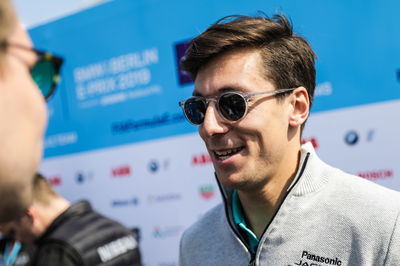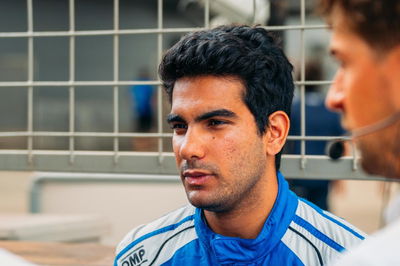Porsche motorsport chief ‘sceptical at first’ about Formula E
Porsche motorsport chief Fritz Enzinger has conceded he was “sceptical at first” about the possible success of Formula E, but says it was “love at second sight” following the German manufacturer’s entry to the series.
Porsche made its Formula E debut at the 2019-20 season opener in Saudi Arabia in November, recording a podium finish in its very first race through Andre Lotterer in second place.
The programme has become Porsche’s racing priority following the closure of its LMP1 team at the end of 2017, joining a booming grid of manufacturers racing in Formula E.

Porsche motorsport chief Fritz Enzinger has conceded he was “sceptical at first” about the possible success of Formula E, but says it was “love at second sight” following the German manufacturer’s entry to the series.
Porsche made its Formula E debut at the 2019-20 season opener in Saudi Arabia in November, recording a podium finish in its very first race through Andre Lotterer in second place.
The programme has become Porsche’s racing priority following the closure of its LMP1 team at the end of 2017, joining a booming grid of manufacturers racing in Formula E.
Speaking to Porsche’s official website, motorsport vice-president Enzinger explained how Formula E had shifted his views on racing.
“Naturally, I was sceptical at first, and - like many others - could not imagine that this series would achieve such popularity within just a few years. Races were always loud, and in the pits and on the track it smelled of gasoline and exhaust fumes,” Enzinger said.
“In Formula E, the chirping of the electric motors mixes with the rolling noises of the tires. It’s a completely different sound. So you could say that it was love at second sight.
“But younger and subsequent generations will take a more impartial view. Sooner or later, kids won’t say ‘vroom-vroom’ when they’re playing with toy cars.
“There’s a fantastic power density - and it’s on the rise. For season six, ten manufacturers are involved, four of them from Germany. They all drive with the same monocoque and get identical batteries. This results in a very narrow development corridor; only the drivetrain and the associated power electronics allow for differentiation.
“But it’s precisely these trendsetting, detailed developments that are important when it comes to learning for series production. Formula E is clearly the most competitive environment for driving the development of high-performance vehicles in terms of environmental friendliness, efficiency, economy, and sustainability.
“We want to continue the success story we started in 2010 with Porsche’s first hybrid racing car.”











